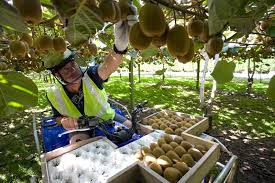
With regard to employment status this analysis divides New Zealanders into those who work for a wage or salary, those who are self-employed, those who are self-employed with employees (i.e. employers) and those who do unpaid work in the family business. This does not consider the unemployed because this is discussed in the article about Labour Force Status.
The strongest correlations in this section are those that reflect the basic economic division of society, between owners and owned.
In particular, the correlation between being self-employed with employees and voting National in 2014 was an extremely strong 0.75. The converse – with voting Labour in 2014 – was even stronger at -0.83.
This is hardly surprising if one takes into account that the entire purpose of the National Party’s existence – at least theoretically – is to shift the balance of power towards the employer (and the bigger the employer the better) whereas the precise opposite is true for the Labour Party.
There were similar correlations for those who are self-employed without employees, only not quite as strong. People in this category had a correlation of 0.68 with voting National in 2014 and a correlation of -0.78 with voting Labour in 2014. These are no doubt strong for the same reason the ones above were strong.
As could be predicted from the general enfranchisement rule, people in the employer group have an extremely high turnout rate. For the self-employed with employees the correlation with turnout rate in 2014 was 0.57, and for the self-employed without employees it was 0.63.
This group was more or less indifferent to the two medium-sized parties. Those who were self-employed without employees had a small, not significant positive correlation with voting for the Greens in 2014 (0.14), and a small, not significant negative correlation with voting for New Zealand First (-0.23). This probably reflects the influence of the professional class, and the number of doctors, lawyers, psychologists etc. with their own practices.
One statistic that will surprise some is that the correlation with working for a wage or salary is much stronger for people who voted Green in 2014 (0.41) than it is for those who voted Labour in 2014 (0.11). The reason for this is the large proportion of beneficiaries among Labour voters.
This correlation between working for a wage or salary and voting Green in 2014 is the strongest of its kind. The next strongest correlations between working for a wage or salary and voting for a particular political party were 0.23 for the Aotearoa Legalise Cannabis Party, 0.18 for the Maori Party and 0.11 for Internet MANA.
There were two significantly negative correlations. Between working for a wage or salary and voting for New Zealand First in 2014 the correlation was -0.32, and with voting Conservative in 2014 it was -0.43. This probably reflects the fact that these two parties get a significant number of votes from people who are too old to be working for a wage or salary.
There was also a negative correlation between working for a wage or salary and turnout rate in 2014 (-0.08), but this was not significant.
A curiosity is that the correlation between working unpaid in the family business and voting New Zealand First in 2014 (0.34) is about the same as the correlation between working in this manner and voting National in 2014 (0.32). This is because most people in this group are the elderly who have left the running of the family business or farm to their offspring, and who contribute but do not need to take money out.
*
This article is an excerpt from Understanding New Zealand, by Dan McGlashan, published by VJM Publishing in the winter of 2017.
